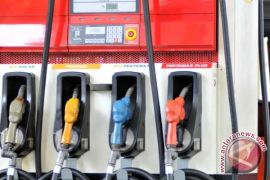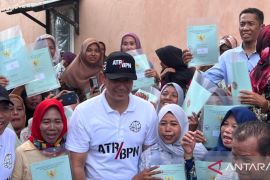The international rating agency has previously downgraded Indonesia debt rating from positive to stable because the government had yet to realize its plan to increase subsidized fuel oils.Yoyakarta (ANTARA News) - Increase in subsidized fuel prices would lead Standard & Poor`s (S&P) to upgrade its rating of Indonesia`s debt, Standard Chartered Bank economist Fauzi Ichsan said.
"If the government raises the prices of subsidized fuels, the S&P will also raise Indonesia`s debt rating," said Fauzi Ichsan in a seminar on Macroeconomic Policies For Sustainable Growth With Equity in East Asia here on Thursday.
The international rating agency has previously downgraded Indonesia debt rating from positive to stable because the government had yet to realize its plan to increase subsidized fuel oils.
Fauzi said that the S&P lowered its rating of Indonesia`s debt because the government had aired discourses on its plan to lift the prices of subsidized fuels since in the last 12 months but until now it had not yet realize it.
As a result the trade sector inclined to be cautious triggering increases in the prices of food commodities and inflation.
"It causes expectation that production and transportation costs will increase while the value of the rupiah currency against the US dollar is weakening but imports are rising," he said.
It was reported early this month that international rating agency Standard and Poor`s (S&P) had downgraded its rating on the country`s economy from outlook BB+ positive to BB+ stable
However, a central bank senior official said that Indonesia`s economic fundamentals remain in good control although, although the international rating agency had downgraded the country`s economy.
"This is the S&P rating based on its judgment. We also have our own judgment where Bank Indonesia (BI) is of the view that Indonesia`s economy remains secure," Bank Indonesia (BI/the central bank) Deputy Governor Halim Alamsyah said.
He said that Indonesia`s economy would remain strong in the long run. There would be not many fundamental changes even though there were expectations with regard to policies the Indonesian government was going to take.
"Our economic fundamentals are not that bad. Global economy and that in Asia have shown improvement, the performance of our exports have also improved slightly," said Halim.
A number of markets which were previously predicted by BI to be under economic pressures turned out now to show signs of improvements, he said.(*)
Editor: Heru Purwanto
Copyright © ANTARA 2013






